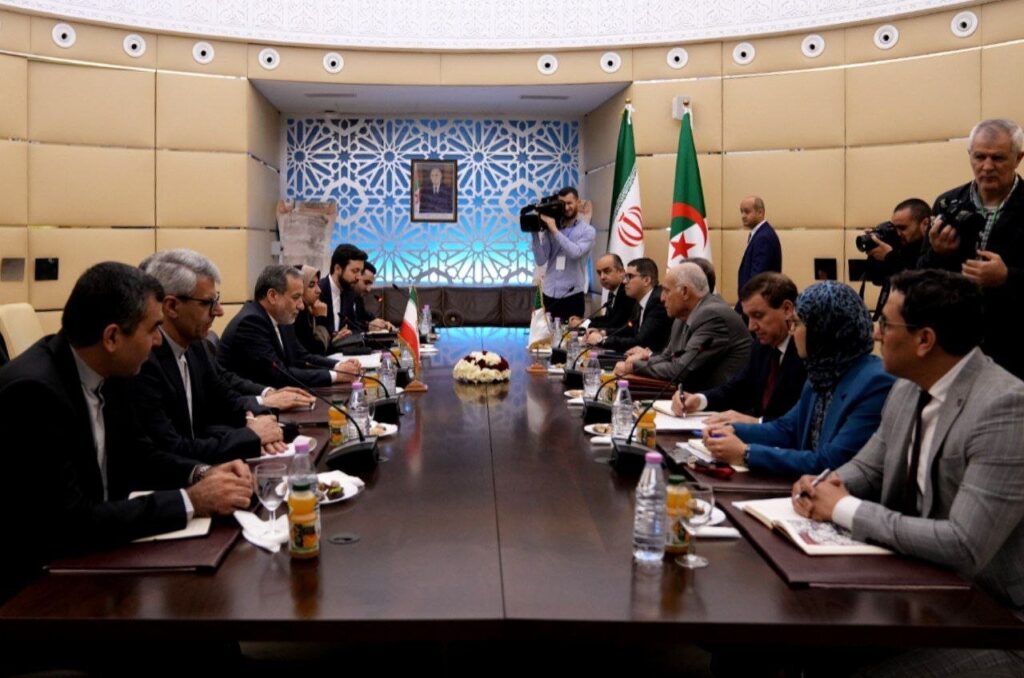TEHRAN – Iranian Foreign Minister Abbas Araguchi led a high-ranking delegation in Algeria and held crucial consultations with Algerian counterpart Ahmed Atah on Thursday, highlighting the nation’s common vision of deepening regional stability and bilateral cooperation.
The conference, marked by decades of mutual admiration for solidarity, highlighted an urgent call to address the Israeli regime’s “legal development” in Western Asia and mobilize Islamic diplomacy to halt Palestinian genocide.
“Iran and Algeria’s relations are historic, resilient and deeply rooted,” Aragut declared he would arrive in Algiers, emphasizing the national alignment to the regional crisis.
“Our Algerian brothers are in a steady position along with Iran during a critical historical fork and have taken praiseworthy steps to improve the dynamics of the region.”
He praised Algeria’s “principle and robust” stance on Palestine, a recurring theme in the debate.
Attaf has warmly welcomed Iranian delegations, described bilateral relations as a “model partnership” and reaffirmed that Algeria is ready to expand collaboration across all sectors. The Minister has considered advances in political and economic cooperation. Political and economic cooperation has surged in recent years amid the synergy between joint infrastructure projects and the energy sector.
The dialogue also includes escalating violence in Israeli regime’s occupied Palestine, with Aragut denouncement of Western accomplices in Tel Aviv’s atrocities.
“Normalizing the crimes of this regime poses the most serious threat to peace, sovereignty and international law,” he argued, urging Islamic countries to unite diplomatically against the “forcibly ethnic cleansing and forced evacuation of Gaza.”
Attaf reflected these concerns and highlighted Algeria’s efforts as a member of the non-permanent UN Security Council to build a global consensus against Israeli attacks.
“Algeria remains committed to using multilateral platforms to maintain international peace,” he said, referring to the recent UN initiative to condemn Israel’s bombings on Gaza and illegal settlements.
Araguchi highlighted Tehran’s preparation for enhancing relations, particularly in trade and technology. “Our political relationships are exemplary, but we must exploit the untapped economic potential,” he said, implying ongoing negotiations for priority trade agreements.
Attaf supported Algeria’s support of Iran’s bid to join BRICS, and framed it as a step to “oppose unilateral opposition” in global governance.
Both ministers have condemned Israel’s occupation of Syria and Lebanon’s territory, warning that regional unrest is at risk of swirling into wider conflicts. They pledged to strengthen diplomatic coordination of international organizations, including the Organisation of Islamic Cooperation (OIC), and committed to pressure Israel to comply with the ceasefire resolution.
Revitalizing historical partnerships
The Minister’s meeting is based on the legacy of anti-colonial solidarity. As founding members of the non-aligned movement, Iran and Algeria have long defended Palestinian self-determination and North-South cooperation.
The alliance gained new momentum exemplified in March 2024 by President Ebrahim Raisi’s landmark visit to Algiers. This was the first Iranian leader in 14 years to prioritize gas cooperation under the Gas Exporting Countries Forum (GECF) and infrastructure development.
Economic ties are thriving, with Algeria’s Iranian petrochemists and drug imports steadily rising.
Currently, recent bilateral agreements extend to renewable energy and academic exchanges, reflecting mutual commitment to sustainable development.
Analysts note that Algeria’s strategic role in the Arab Maghreb coalition provides Iran with a gateway to expanding trade across North Africa, and that the 2023 joint naval training signalles deepening defence coordination.

